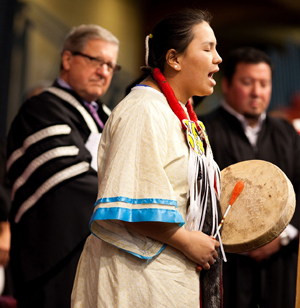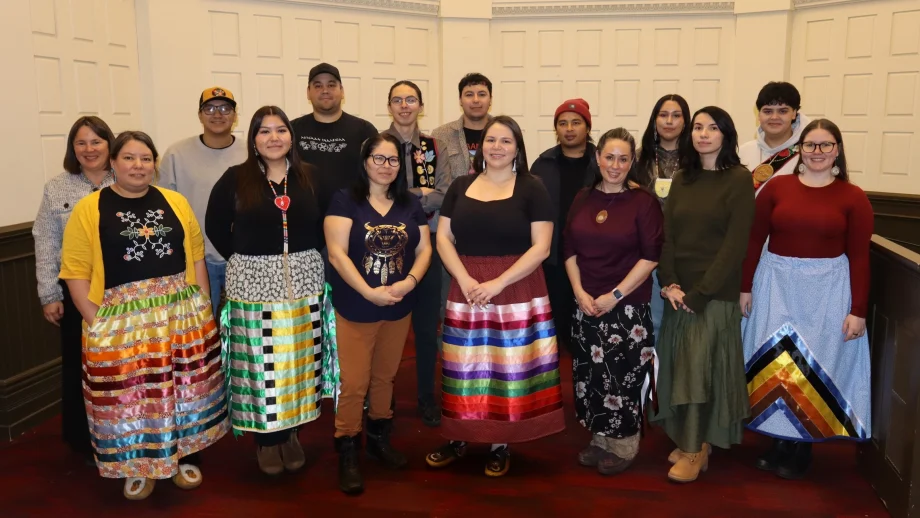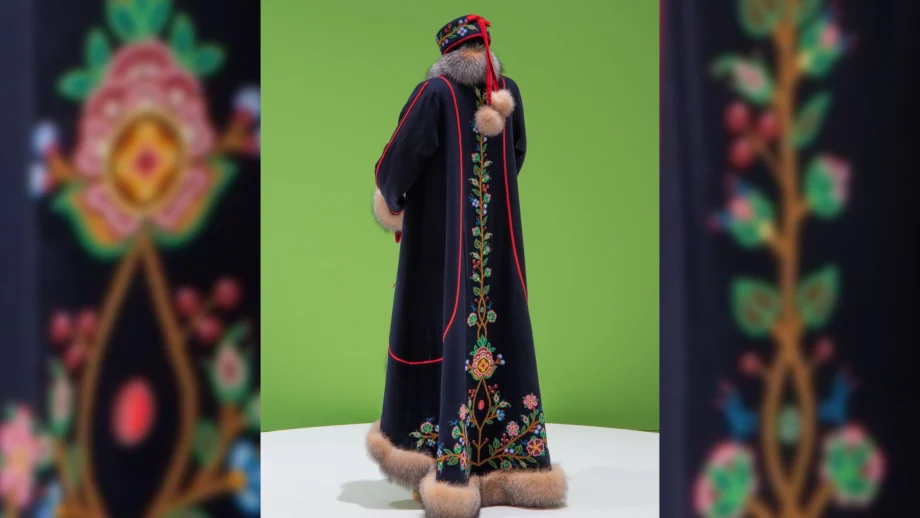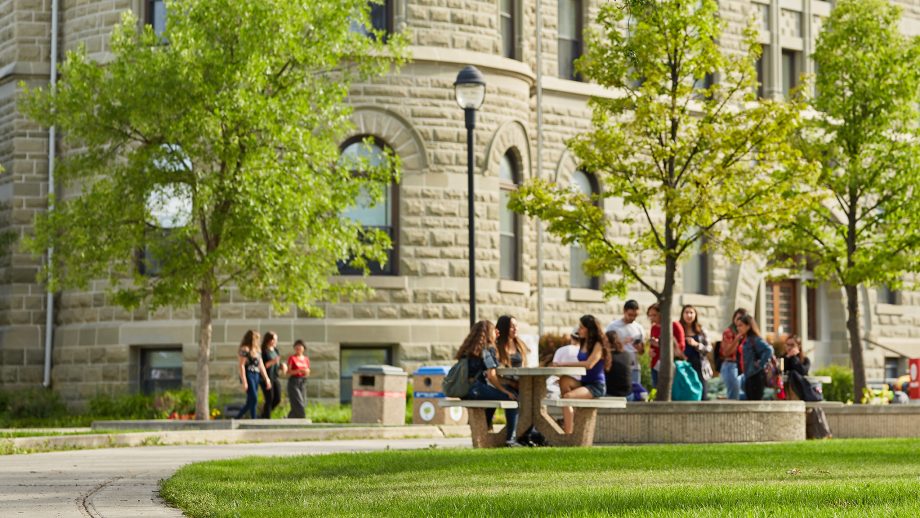
Photo: Dr. Lloyd Axworthy, President and Vice-Chancellor, University of Winnipeg with student Jasmine Parisian, at Autumn Convocation 2011.
Today marks the 16th anniversary of National Aboriginal Day, honouring the culture and contributions of First Nations, Métis and Inuit peoples. It is with sincere appreciation that I acknowledge the importance of this day.
The University of Winnipeg is on Treaty One land in the heart of the Métis Nation. As such, we are committed to providing the framework that enables Indigenous perspectives to enlighten the University’s governance, programs, and services — resulting in enhanced opportunities for all students. UWinnipeg recently created an Indigenous Advisory Circle, chaired by Dr. Phil Fontaine, former National Chief of the Assembly of First Nations, which meets throughout the year. The University benefits both from the Circle’s valuable guidance on Indigenous perspectives, as well as the members’ expertise in education and development.
Our city has one of the fastest-growing urban Indigenous populations in Canada, and I am proud that UWinnipeg reflects this reality. We are one of the top universities in the country for Indigenous participation — with approximately 12% of our student body self-identifying as First Nations, Métis and Inuit. We are committed to offering a holistic, relevant and respectful educational experience.
UWinnipeg’s Department of Indigenous Studies is grounded in the intellectual and cultural heritage of Indigenous peoples in Canada and around the globe. We offer a Bachelor’s degree in Indigenous Studies and a Master’s degree in Indigenous Governance. Most recently, we created the Master’s in Development Practice (MDP) in Indigenous Development. This unique program was created in partnership with the MacArthur Foundation, and the first cohort of students will graduate in 2013. The MDP focuses on applied learning in the fields of natural sciences, social sciences, health and management to provide development practitioners with the tools to work in partnership with communities to address local and global challenges.
UWinnipeg offers unique learning opportunities in the Faculty of Education, in Urban and Inner-City Studies, in the Indigenous Police Preparation Program and Industry Workplace Skills Diploma Program of the Professional, Applied and Continuing Education Faculty and in other courses throughout the University. Our Aboriginal Student Services Centre, with its excellent staff, Elders, Transition Year Program, and Aboriginal Student Council do an incredible job of meeting the academic, social, cultural and spiritual needs of students.
REMOVING BARRIERS
We have also created the Opportunity Fund Fast-Track program, Tuition Credit program, and the new Tuition Waiver for Youth in Extended Care program. We believe in equity and socio-economic status should not be a barrier to attending university.
Our commitment to community is also reflected in our efforts. We are reaching out to thousands of First Nations, Mtis, and Inuit children, youth and adults in our surrounding neighbourhood to break down barriers to post-secondary education and tackle the graduation gap. We believe in partnering with Elders, neighbours and communities to create a vibrant, reflective, and relevant learning experience through the Wii Chiiwaakanak Learning Centre’s Ojibway Language Program and the Innovative Learning Centre’s Eco-U Summer Camp and Eco-Kids on Campus programs, to name a few. This year we created a one-stop Indigenous web portal to bring information on all of our Indigenous programs and services together.
It was my great privilege to become an honourary citizen of Sagkeeng First Nation in July 2010. The honour brings me an Ojibwe name — Waapshki Pinaysee Inini —- which means White Thunderbird Man and I take the responsibility seriously.
As we celebrate National Aboriginal Day, it is important to remember we are all Treaty people.
Dr. Lloyd Axworthy
June 21, 2012




